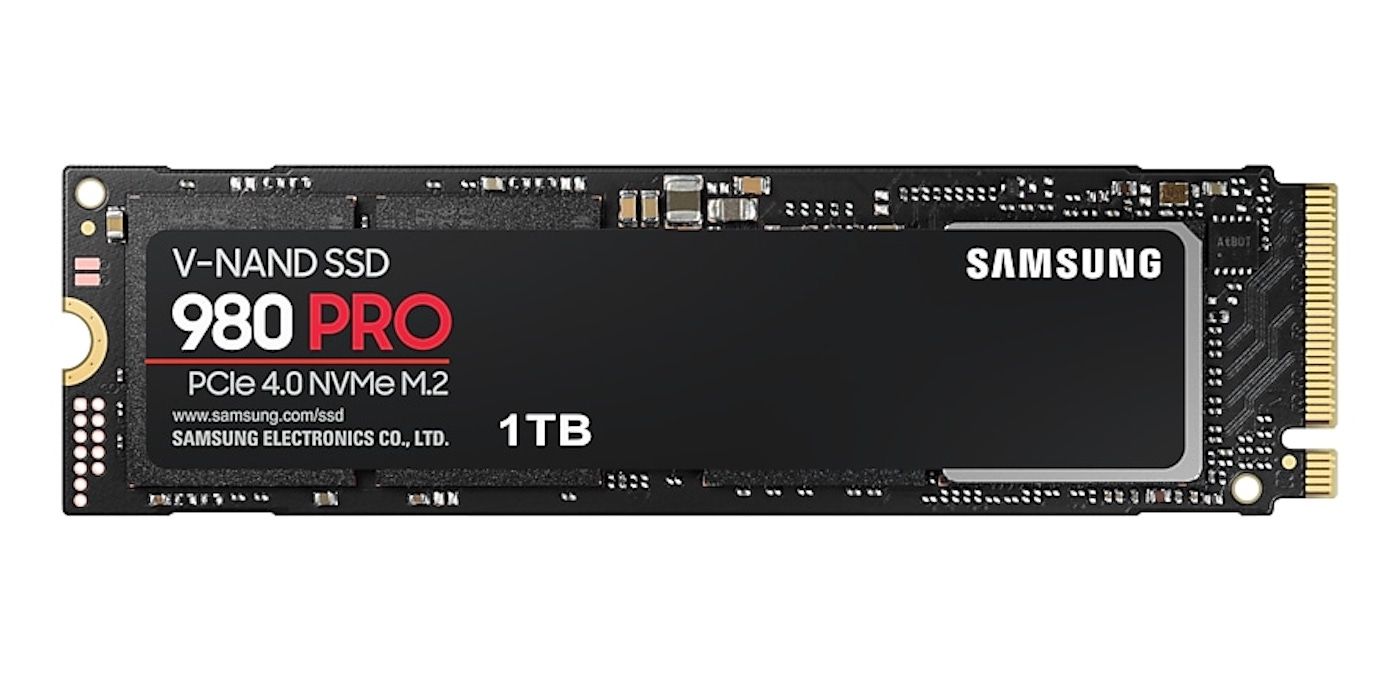Fastest Ever Consumer-Level PCIe 4.0 SSD Revealed by Samsung

Solid State Drives, or SSDs, continue to improve in speed, lower in price, and make HDDs more obsolete. SSDs are about to become the standard in video game consoles when the Xbox Series X and the PS5 launch this year, with the latter sporting a proprietary SSD that is impressing industry veterans like Tim Sweeney. But as far as PCs are concerned, it looks like Samsung is poised to take the next leap, if a recent online listing of a new PCIe 4.0 SSD is to be believed.
A recent listing on Samsung’s official Singapore website features the 980 Pro SSD, which boasts read speeds up to 2,000 MB/s more than the current PCIe 4.0 record of 5,000 MB/s. The new series of drives will come in 1TB, 500GB, and 250GB configurations. Samsung also claims that these new drives are almost 13 times faster than any SATA SSD. The drives also feature 1GB of DDR4 memory as a cache.

For those who don’t know, SATA is the old-school, more common connection method between a motherboard and its components, such as SSDs, graphics cards, memory, and the like. PCIe 4.0 is a relatively new development, but it allows for on average double the bandwidth and read and write speeds a PCIe 3.0 connection can allow. Coupled with the new 980 Pro SSD, these speeds may be so fast that they could possibly reduce the need for data management, and help reduce crunch, according to some developers.
Whether playing on console or PC, one has to admit that the prospect of the amount of data these near-future machines can run through is tantalizing, to say the least. It most certainly will, but there hasn’t been a ton of looks into how much these newfound speeds will affect games of the future, except for maybe the PS5 demo of Ratchet and Clank: Rift Apart that showcased multiple fully-realized worlds whizzing by the player. This kind of speed will give game developers a new ceiling to shatter on their way to bigger, richer, and more beautiful worlds.
There are no price or release details yet for the 980 Pro SSD line.

Post a Comment